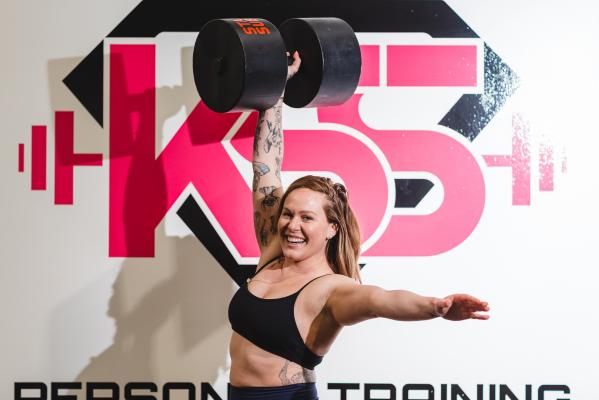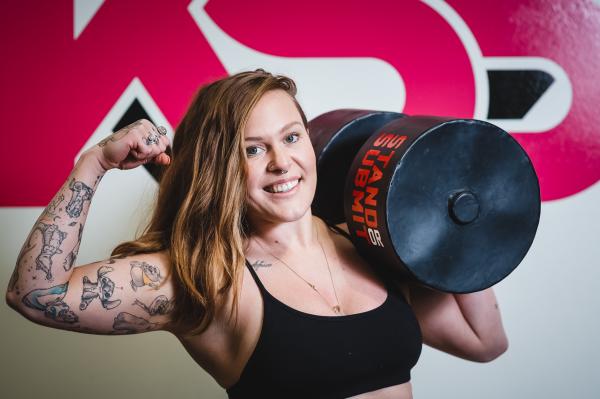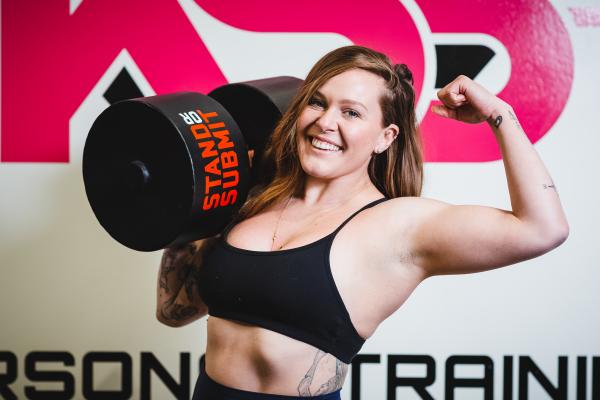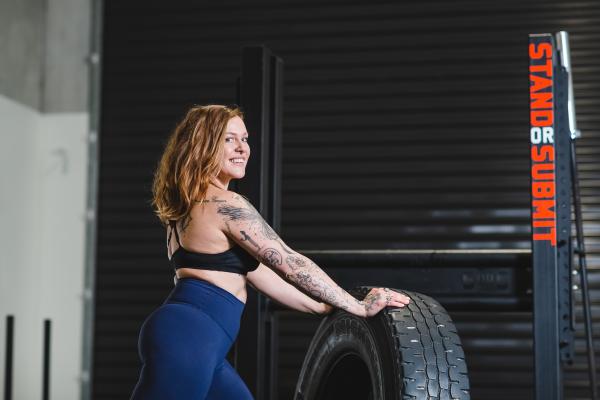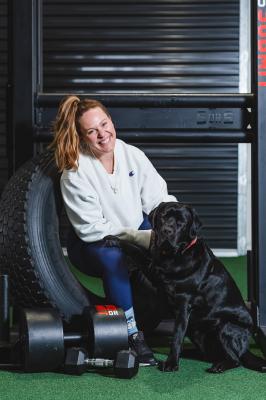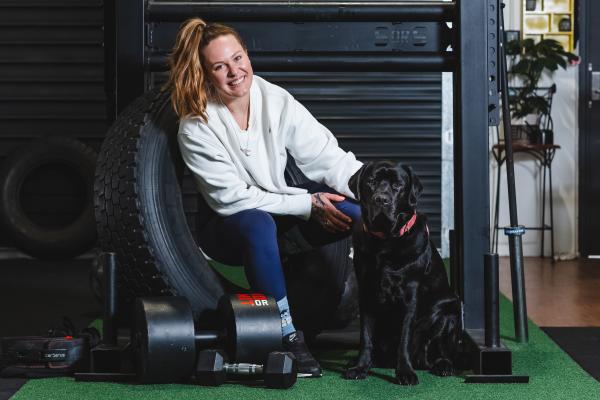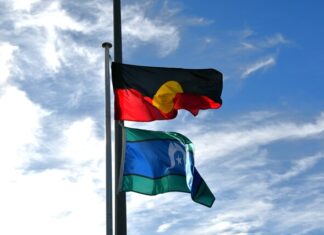Kerryn Siems overcame fear, a negative body image and an abusive relationship on her way to becoming a strong woman.
She speaks to Luke Voogt about the sport that helped her find her strength, both outside and in.
Belmont strong woman Kerryn Siems admits she “hated” group sessions when she first joined a gym almost a decade ago.
“There was nothing about the training I didn’t like, it was more that it was hard because I was really unfit,” the 33-year-old told the Independent.
“I felt like a baby elephant trying to do a circuit. Now I run group sessions myself.”
Kerryn initially joined to “get a bikini body” – a quest that would later turn into something so much more.
“I was very out of shape and I wanted to lose weight,” she said.
“Most people would have looked at me and thought, ‘she’s not that out of shape.’ But I didn’t feel very healthy within my own body.
“I kind of abused my body in my 20s eating rubbish, drinking and not really looking after myself.”
She had just migrated from the UK to Australia after escaping an abusive and sometimes violent relationship.
“He was drug dealer and 10 years older than me,” she said.
“I was also doing a lot of drugs at the time. I knew that it wasn’t good for me and that my mental health was suffering.
“I knew I wanted out, but every time I tried to get out, he pulled me back in.
“I had a friend who lived in Geelong and she told me to come down for six months and have a look around. So I did – I kind of put myself into my own rehab.
“And I’ve never looked back.”
But Kerryn’s body dysmorphia stemmed back long before she first joined a Geelong gym in 2012.
“I had battled with my body image ever since I was a young girl,” she said.
Growing up in Pinetown, South Africa, Kerryn was an athletic girl who ran cross country, swam for her school team and did majorettes, similar to calisthenics.
But that changed at age 12 when her family migrated to the UK, just as she starting going through puberty.
“As you become a woman, your body starts to change – you suddenly start to hold weight in different places,” she said.
“For me it all felt very foreign and I almost felt ashamed.
“Then you see all the media with models who pretend to have zero body fat. You think there is something wrong with you for not looking like that.”
Those body image issues continued as an adult, eventually prompting Kerryn to join the gym after she moved to Australia “for a new start” and warmer weather in 2011.
Initially, she struggled to find motivation.
“I would come up with every excuse under the sun not to train,” she said.
So she hired a personal trainer to keep her on track, and became more focussed on weight-based training.
As she built her strength, she began to appreciate her body more for “what it was able to do, rather than how it looked”.
In 2015, Tyson Morrisey, crowned the world’s third-strongest man under 105 kilograms in 2018, noticed her training at South Geelong gym Strong Geelong.
“It sounds cliché but he said, ‘you’re pretty strong for a girl. I don’t know if you realise how strong you are, you should compete’,” she said.
“He didn’t sugar-coat anything.”
With good programming and Tyson coaching her, she competed in her first strong woman competition in the Australian Log and Deadlift Championships, just a few months later in 2016.
“You have to learn from someone who has experience and he taught me everything I know,” she said.
Kerryn admits being “terrified”, not of the brutal physical tasks before her, but of “failing in front of a crowd”.
But that changed from the moment she took up the first weight.
“I remember strangers cheering for me and it just took all that fear away,” she said.
The sport soon became a huge part Kerryn’s life and she began getting up at 5.30am five times a week to train before work as homebuilding consultant.
“I loved it because it took a lot of focus off trying to look a certain way,” she said.
“Suddenly, that didn’t matter anymore. I cared more about what I was physically able to do.”
The tournaments include several standard events such as lifting stones up to 100kg, pressing a log, a farmer’s carry with 100kg in each hand and carrying a yoke – as in the farming implement traditionally pulled by oxen.
In 2017 Kerryn set the Australian record in the latter for women under 72.5kg, walking 15 metres with a yoke weighing a massive 250kg – almost quadruple her bodyweight at the time.
Each tournament includes an ever-changing mix of other events including axle deadlifts and ‘Conan’s wheel carry’.
Being a strong woman also opened doors in the fitness industry, with Kerryn launching her own all-female gym KSS Personal Training, in February 2020, just before COVID-19 hit.
“I had my opening party on March 9 and I had to close two weeks later,” she said.
But her Geelong clientele, ranging from 15 to 54-years-old, had been fantastic during the pandemic, she said.
“I’ve been very fortunate; I have managed to keep my head above water. When we’re allowed to open and train outside, all of my clients come back.”
Some were training to become strong women too, while others just wanted to get fit or have a coach to keep them accountable, Kerryn said.
“One client, her whole family comes in and trains. I just love what I do.”
But pushing herself to the absolute limit in strong woman competitions has risks she would never expose her regular clients to.
After completing an event at a tournament, she took off her weightlifting belt and one of her left ribs “popped out” of place.
She competed in the remaining three events anyway.
Another time, she used too much ‘tacky’ adhesive to lift a stone, which caused her to hit her face on it when she dropped it.
“I had to have root canals on two teeth,” she said.
“When you get to a certain level of strong woman, things are going to happen,” she said.
“You go in knowing the risks.”
Kerryn will feature alongside other strong and courageous women in a new Australian documentary series available on ABC iview from August 1.
The series, Strong Women, features daughters, mothers and wives sharing how the sport helped them rebuild themselves inside and out after facing domestic violence, bullying, addictions and eating disorders.
The series is the work of documentary filmmaker Alexandra Gaulupeau, and freelance producer Corinne Innes, who was amazed when she first watched these women in action.
“She was blown away. She was like, ‘This is unreal – I’ve never seen anything like this’,” Kerryn said.
“But she could only find documentaries on strong man competitions, as most people were just interested in covering the men. The women were a bit under the radar.”
While for centuries strong women have performed in circus acts, strong women competitions only started to “amp up” about a decade ago, according to Kerryn.
But since 2015 the number of women competing has increased by 500 per cent in Australia.
“In my first competition there were three women in my weight category,” she said.
“When I competed last time, there were 20. I want so much for other women to get involved and have that exhilarating experience.”
The documentary series also promotes the Strong Body Strong Mind campaign, aimed at empowering women to see their body for what it can achieve rather than how it looks or as a “number on the scale”.
Kerryn hopes the documentary can inspire young women struggling with similar body image issues to those she overcame.
“It would have been so awesome to have had role models like there are today, who are … more about what your body can do than needing to look a certain way,” she said.
Details: strongwomendocumentary.com


